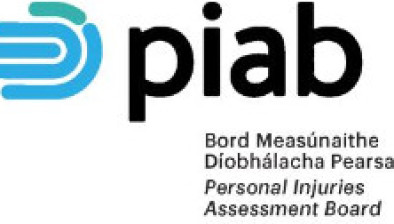High Court: Post-accident medical records should be generally discoverable in personal injuries cases

The High Court has determined that a defendant was entitled to discovery of a plaintiff’s post-accident medical records in a personal injuries case. It was held that post-accident records were clearly relevant to the proceedings and there was no reason why they should not be discovered.

About this case:
- Citation:[2023] IEHC 16
- Judgment:
- Court:High Court
- Judge:Mr Justice Michael Twomey
Delivering judgment in the case, Mr Justice Michael Twomey rejected the submission that the discovery was not necessary on the basis that the defendant would receive post-accident medical reports from the plaintiff. The court held that post-accident records were often more relevant than pre-accident records and discovery played a role in keeping plaintiffs honest in litigation.
Background
The plaintiff issued personal injuries proceedings against the defendant, Castlerea Co-Operative Livestock Mart Limited. The plaintiff claimed that he had suffered injuries to his left shin from a bullock at the Mart and, in replies to particulars, outlined that he also had ongoing lower back pain as a result of the accident.
Further, the plaintiff outlined that he had previously been involved in a road traffic accident in 1999 which resulted in a settlement in 2003/2004. The plaintiff also disclosed that he had a history of back pain and L4/L5 disc bulge, having undergone spinal surgery in the 1980s.
The case proceeded and the defendant brought a motion for discovery seeking the plaintiff’s medical records. The plaintiff consented to medical records relating to back and leg pain up until the date of the accident in November 2017. However, the defendant also sought discovery of post-accident medical records of treatment received following the accident.
Although the plaintiff stated that he would provide records of initial medical attendances, he refused to provide any further post-accident discovery.
In a letter seeking voluntary discovery, the defendant outlined how the plaintiff’s consultant had taken an MRI of the lumbar spine and concluded that a dual pathology was the most likely source of the ongoing pain. It was said that the L5 nerve root had been aggravated by the accident in November 2017.
The defendant submitted that the post-accident medical records were relevant and necessary in the case. It was said that the post-accident discovery was appropriate in order to determine which of the plaintiff’s complaints were attributable to the accident and which were not. The discovery was also said to be necessary to determine the extent of overlap between the pre-accident and post-accident injuries.
The plaintiff resisted the application on the grounds that the post-accident documents were not necessary for the resolution of the case. It was said that the defendant would have sight of the plaintiff’s medical reports and those consultants could be cross-examined by the defendant.
High Court
Mr Justice Twomey held that, at a level of principle, post-accident medical records were relevant to personal injury proceedings. It was said that inter alia contemporaneous hospital admission notes, GP notes, X-rays, MRI scans and consultant notes would be the best evidence of the injuries suffered by a plaintiff.
Additionally, post-accident records could show that there was overlap between existing injuries and new injuries. This potential evidence of overlap could assist defendants in resisting a claim for damages, the court said. The court commented that post-accident records could show that injuries were the result of an unrelated accident which the defendants could use to establish liability in a case.
In making these observations, the court held that a plaintiff who issues proceedings for personal injuries waived their right to privacy regarding their medical condition (see McGrory v. ESB [2003] 3 I.R. 407).
In light of these observations, the court said that “as a general principle, it seems to this court that post-accident medical records are not only relevant but invariably crucial to every personal injuries claim”. Further, in the present claim, the plaintiff clearly had an overlap in pre and post-accident back condition which rendered discovery necessary.
The court also referred to McCorry v. McCorry [2021] IEHC 104, where it was held that there was no bright line rule that post-accident discovery would not be granted. The guiding principles were relevance and necessity, the court said.
Even though the plaintiff would provide his medical reports to the defendant, the court held that this did not render discovery unnecessary. It was noted that discovery played a role in keeping parties honest in litigation (Tobin v. Minister for Defence [2020] 1 I.R. 211). Accordingly, a plaintiff could attend several consultants until they got a report that supported their position, which may portray a “less-than-full picture” of the claim.
The court was also not convinced that the potential for cross-examination of consultants was a good reason to deny post-accident discovery. The court noted that most personal injuries cases settled following discovery, where there would be no cross-examination. On this basis, it was important for the court to ensure that “plainly relevant” documents were provided to the defendant.
Finally, the court also held that post-accident discovery was appropriate because it reduced the risk of a plaintiff hiding relevant medical information. To illustrate this, the court referred to Harty v. Nestor [2022] IEHC 108, where a consultant was limited in his examination to what he was told by the plaintiff rather than making a determination based on medical records.
As such, the court held that the plaintiff’s post-accident medical records were to be discovered in the case. The court noted that a three-year period was usually allowed for pre-accident discovery and this same limit should logically apply (Power v. Tesco Ireland Ltd. [2016] IEHC 390). However, the defendant only sought five months’ post-accident records and the court had “no hesitation” in making this order.
Conclusion
The court made an order for post-accident discovery in the case, holding that the documents were relevant and necessary for the claim.
Egan v. Castlerea Co-Operative Livestock Mart Limited [2023] IEHC 16











